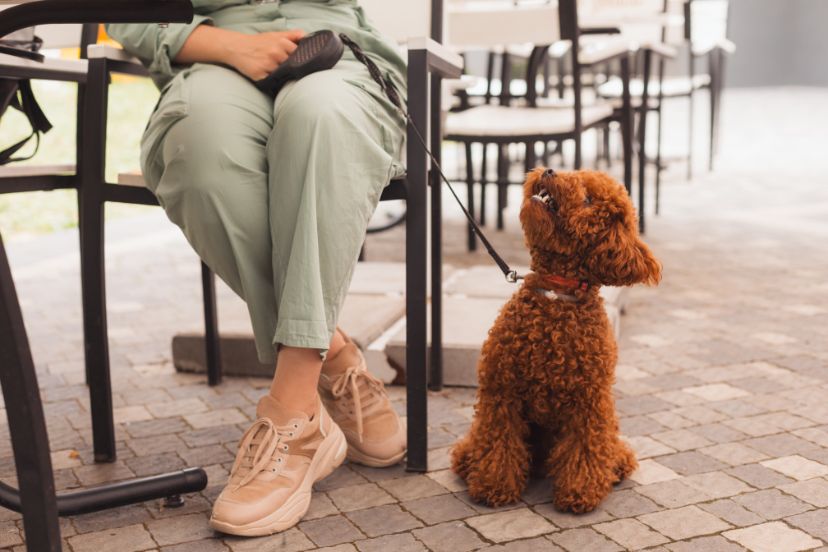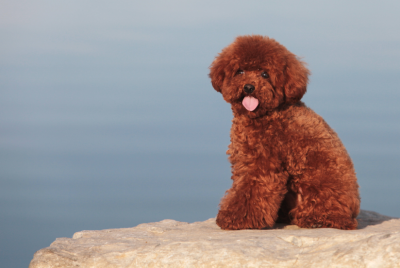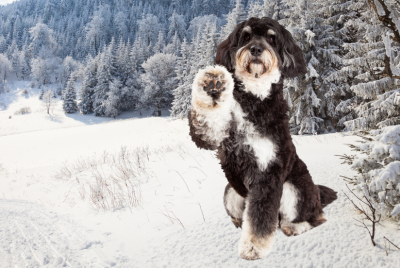Toy Poodle: The Perfect Companion for Every Home
Introduction
Welcome to the wonderful world of Toy Poodles! If you are in search of an affectionate, clever, and pint-sized canine companion, look no further. Toy Poodles have captured the hearts of dog lovers worldwide with their adorable looks, playful demeanor, and remarkable intelligence.
In this comprehensive guide, we will delve into all things Toy Poodle, covering their history, unique traits, grooming needs, training tips, and much more. Whether you’re a seasoned pet owner or a first-timer, these little bundles of joy are sure to win you over.
Toy Poodle: A Petite Wonder
Toy Poodle – What’s in a Name?
Let’s begin with the basics! The Toy Poodle is the smallest variety of the Poodle breed, known for its diminutive size and endearing charm. Despite their name, they are far from mere playthings; these dogs are exceptionally intelligent and versatile.
A Brief History
The history of the Toy Poodle dates back to the 18th century when their larger counterparts, the Standard Poodles, were popular among European nobility as water retrievers. The smaller versions were selectively bred to create the Toy Poodle we know and adore today. Over the years, they have become treasured companion animals, renowned for their beauty and companionship.
Key Characteristics
- Size: Toy Poodles typically stand at 9-10 inches tall at the shoulder and weigh between 4-6 pounds, making them perfect for apartment living or sharing your cozy home.
- Coat: Their luxurious coats are curly, dense, and non-shedding, making them a great option for people with allergies.
- Colors: Toy Poodles come in an array of colors, including white, black, apricot, gray, and brown. The American Kennel Club recognizes several coat patterns, adding to their visual appeal.
- Personality: These pint-sized pups are known for their intelligence, playfulness, and affectionate nature. They form strong bonds with their owners and thrive on attention and love.
- Lifespan: With proper care and a healthy lifestyle, Toy Poodles can live for 12-15 years, offering a decade of joy and companionship.
Caring for Your Toy Poodle
Grooming Needs
Keeping your Toy Poodle’s coat in tip-top shape is essential to maintain their regal appearance. Regular grooming is a must to prevent matting and tangles. A brush with gentle bristles and a slicker brush should be used at least every other day. Additionally, occasional professional grooming will help maintain their coat’s health and appearance.
Exercise Requirements
Though they are small, Toy Poodles have a moderate need for exercise and mental stimulation. Daily walks and playtime in a fenced yard will keep them happy and healthy. Engaging them in fun activities like fetch or agility training will also keep their minds sharp.
Training Tips
Thanks to their intelligence and eagerness to please, Toy Poodles are highly trainable. Positive reinforcement methods work best, such as treats, praise, and affection. Consistency and patience are key to successfully teaching them commands and good behavior.
Feeding Your Toy Poodle
A well-balanced diet is essential to ensure your furry friend remains healthy and vibrant. High-quality commercial dog food that suits their size and age is recommended. Consult with your veterinarian to determine the best feeding schedule and dietary requirements for your Toy Poodle.
Health Considerations
While Toy Poodles are generally robust and healthy, they are prone to certain genetic conditions like hip dysplasia and progressive retinal atrophy. Regular vet check-ups, a nutritious diet, and exercise can help keep health issues at bay.
FAQs about Toy Poodles
- What makes Toy Poodles stand out from other dog breeds?
Toy Poodles are not only adorable but also highly intelligent and trainable. Their hypoallergenic coats and small size make them suitable for various living situations, making them popular choices for urban dwellers. - How much exercise do Toy Poodles need daily?
Toy Poodles need moderate exercise, which includes daily walks and playtime. Around 30 minutes to an hour of activity is usually enough to keep them healthy and content. - Are Toy Poodles good with children and other pets?
Yes, Toy Poodles are generally friendly and get along well with children and other pets when socialized from an early age. However, interactions should always be supervised. - Do Toy Poodles shed a lot?
No, Toy Poodles are considered a hypoallergenic breed and do not shed much. Their non-shedding coats make them an excellent choice for people with allergies. - How often should I groom my Toy Poodle?
Toy Poodles require regular grooming to prevent matting and tangles. Brushing every other day and occasional professional grooming is recommended. - Are Toy Poodles prone to any health issues?
Like all dog breeds, Toy Poodles may be susceptible to certain health conditions. Regular vet check-ups and a healthy lifestyle can help minimize the risk of potential health problems.
Conclusion
Toy Poodles are undoubtedly a delightful addition to any family. Their intelligence, charm, and compact size make them one of the most sought-after breeds in the canine world




